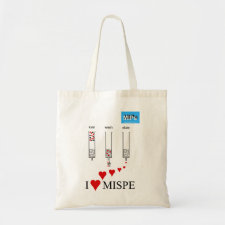
Authors: Lee E, Park DW, Lee JO, Kim DS, Lee BH, Kim BS
Article Title: Molecularly imprinted polymers immobilized on carbon nanotube.
Publication date: 2008
Journal: Colloids and Surfaces A: Physicochemical and Engineering Aspects
Volume: 313-314
Page numbers: 202-206.
DOI: 10.1016/j.colsurfa.2007.04.093
Alternative URL: http://www.sciencedirect.com/science/article/B6TFR-4NWCD8Y-B/2/912add6bcc17f89b1119fe801ff63ae2
Abstract: Molecularly imprinted polymers (MIPs) are artificial materials containing recognition sites with high affinity and selectivity. This study aims to immobilize MIPs on the surface of carbon nanotube (CNT) in an effort to develop biosensor system based on CNT transistor using MIPs as a probe material. As a linking molecule of MIPs to CNT, acrylated Tween 20 was synthesized by reacting Tween 20 with acryloyl chloride, and then immobilized on CNT by hydrophobic interactions. 1H NMR and FT-IR spectra confirmed the synthesis of acrylated Tween 20. MIPs were formed for theophylline as a model template on the surface of CNT with methacrylic acid (functional monomer) and ethylene glycol dimethacrylate (crosslinking agent) using a photografting polymerization technique. The adsorbed layer of 2,2-dimethoxy-2-phenylacetophenone initiated a radical polymerization near the surface by UV-light irradiation. AFM images displayed the formation of MIPs on CNT with a size less than 10 nm. The theophylline-imprinted polymer on CNT showed higher binding capacity for theophylline than non-imprinted polymer (NIP) on CNT and selectivity for theophylline over caffeine (similar structure molecules)
Author keywords: Molecularly imprinted polymers, Carbon nanotube, biosensor, Photografting polymerization



Join the Society for Molecular Imprinting

New items RSS feed
Sign-up for e-mail updates:
Choose between receiving an occasional newsletter or more frequent e-mail alerts.
Click here to go to the sign-up page.
Is your name elemental or peptidic? Enter your name and find out by clicking either of the buttons below!
Other products you may like:
 MIPdatabase
MIPdatabase









